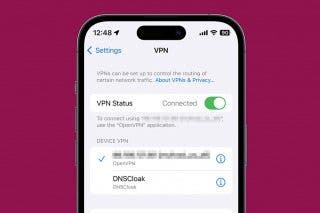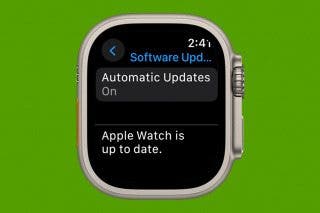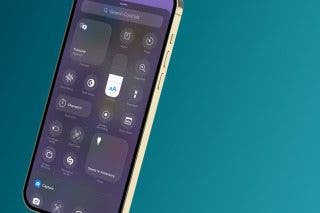Apple’s Struggle for Software Stability: Can iOS 12 Win Back Our Trust?


Apple didn’t invent the personal computer. Nor did it create the first smartphone or tablet. Throughout the tech company’s history, from its origins with Steve Jobs and Steve Wozniak tinkering in a garage all the way to the present, the key to its success has been in taking emerging technologies and making them user-friendly for the masses. One of Jobs’ catchphrases when introducing a new product was, “It just works.” He said it so frequently it might as well have been Apple’s motto. Apple’s ability to create user-friendly products has not only allowed it to sell products to the masses, but also to charge a premium in the process. Today there are countless Android phones and tablets on the market that cost a fraction of what Apple sells its products for. For example, you can buy a brand-new Kindle Fire for $80 whereas an iPad costs anywhere from $329 for an entry-level model to $1,279 for a fully loaded iPad Pro. It’s no exaggeration to say that Apple’s reputation for making easy-to-use products is its most valuable asset. In the past year, Apple has struggled to meet its own standard. With iOS 12, Apple is attempting to repair the damage incurred by iOS 11 and reclaim its mantra of “It just works.”
Apple announces a new mobile operating system each June at its Worldwide Developers Conference (WWDC.) After we get a walkthrough of all the new features, CEO Tim Cook typically comes back on stage to tell the audience that this year’s OS is Apple’s best yet. Each time he makes this claim, I roll my eyes at the hyperbole. After all, the whole point of releasing a new version is to improve upon the previous one. Then iOS 11 happened, and I realized that change does not always equal improvement. On the surface, iOS 11 introduced relatively minor changes. New features included Do Not Disturb While Driving, document scanning in Notes, and a host of changes to the iPad’s user interface. However, almost immediately after the release of iOS 11, a myriad of bugs began plaguing the devices running it. These errors included misaligned text in the App Store, animation errors in notifications, and the Home screen dock randomly disappearing. Some phones began crashing at exactly 12:15 A.M., while others crashed when receiving a specific character in a native Indian language called Telugu. Several bugs affected me personally: for a while, every time I sent a text the letter “I” would be replaced with what looked like a Wingdings character, I couldn't read new text messages because the keyboard covered them up, and my phone frequently got stuck in landscape mode.
In addition to all of the iOS 11 bugs, it also came out late last year that Apple was deliberately slowing down older iPhones. While many people felt Apple was forcing customers into buying new devices, Apple claimed it was throttling performance in order to protect phones with aging batteries from crashing. Even if we give Apple the benefit of the doubt and believe its claim (which for the record, I do), the lack of transparency on this issue was troubling. By not revealing that it was slowing down phones due to battery issues, customers were unaware that they could speed them up again by replacing the battery. The throttling also slowed down many phones that weren't previously crashing. Apple has since apologized for its handling of the issue, added an option to turn this feature off, and offered to replace the batteries of affected phones at a discounted rate. While a nuisance, none of these issues has changed my opinion that Apple makes the best products in the world. That being said, they’ve raised the stakes for iOS 12. Small problems can add up and erode customers’ confidence over time. That’s something Apple cannot afford to let happen. Not only is it struggling internally to maintain its reputation, but Android is challenging it too, as it has become much more user-friendly and reliable over time. A few weeks after the release of iOS 11, I overheard a man in line in front of me complaining about the new operating system to his friend. He said that his phone had become so buggy that he was planning on switching to Android. This is a nightmare scenario for Apple.
We won’t truly know how iOS 12 performs until its release this fall, but from watching Apple executive Craig Federighi demo the iPhone and iPad software at the WWDC Keynote this year, it appears that Apple has learned a lot of lessons from iOS 11. The first thing Federighi focused on was how iOS 12 would run faster on older phones (something that I’d never heard them talk about before.) Apparently, the iPhone 6 plus will launch apps at twice the speed, load the keyboard 50 percent faster, and open the camera from the Lock screen up to 70 percent faster. While Apple usually excludes additional generations of iPhone with each new operating system, this year iOS 12 will be available for every device that runs iOS 11, implying that it will be an improvement even for fairly old devices. Tellingly, most features of iOS 12 focus on customers’ pain points. Features like notifications grouped by app and improved parental controls aren't flashy but eliminate frustrations and make your device easier to use. Until we get our hands on the shipping version of iOS 12 in September, we won’t know for sure whether Apple can deliver on its promise for stable mobile software. New features are a luxury I can live without if it means I can once again pick up my phone and be greeted by an interface that “just works.”
David Averbach
David Averbach is the CEO and Publisher of iPhone Life. In the last 13 years, he has shared his Apple expertise on multiple industry panels, was awarded FOLIO magazine’s 2014 media industry’s innovators 20 in Their 20s, taught classes for our premium subscribers, and co-hosted over 200 episodes of the iPhone Life Podcast. A lifelong Apple fan, David would be lost without his MacBook Pro, iPhone, iPad Pro, Apple Watch HomePod, Apple TV, and AirPods. In his free time, David enjoys optimizing his smart home setup, savoring a good cup of coffee, and traveling.
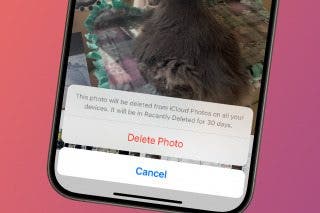
 Rhett Intriago
Rhett Intriago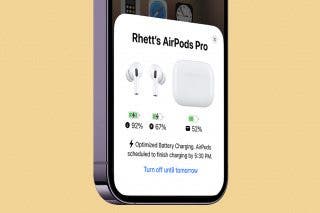

 Brian Peters
Brian Peters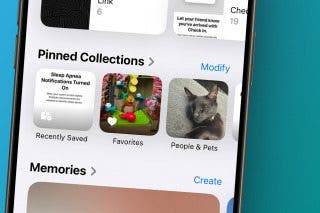

 Rachel Needell
Rachel Needell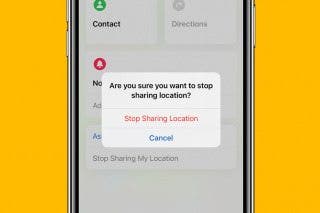
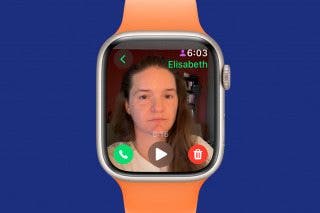

 Hal Goldstein
Hal Goldstein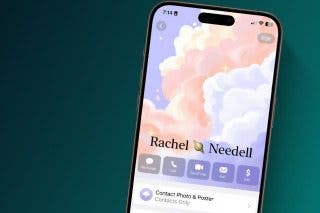
 Leanne Hays
Leanne Hays
 Olena Kagui
Olena Kagui

